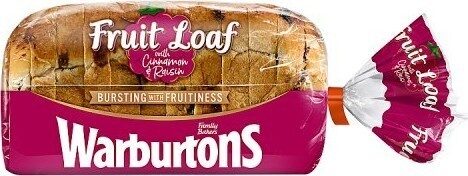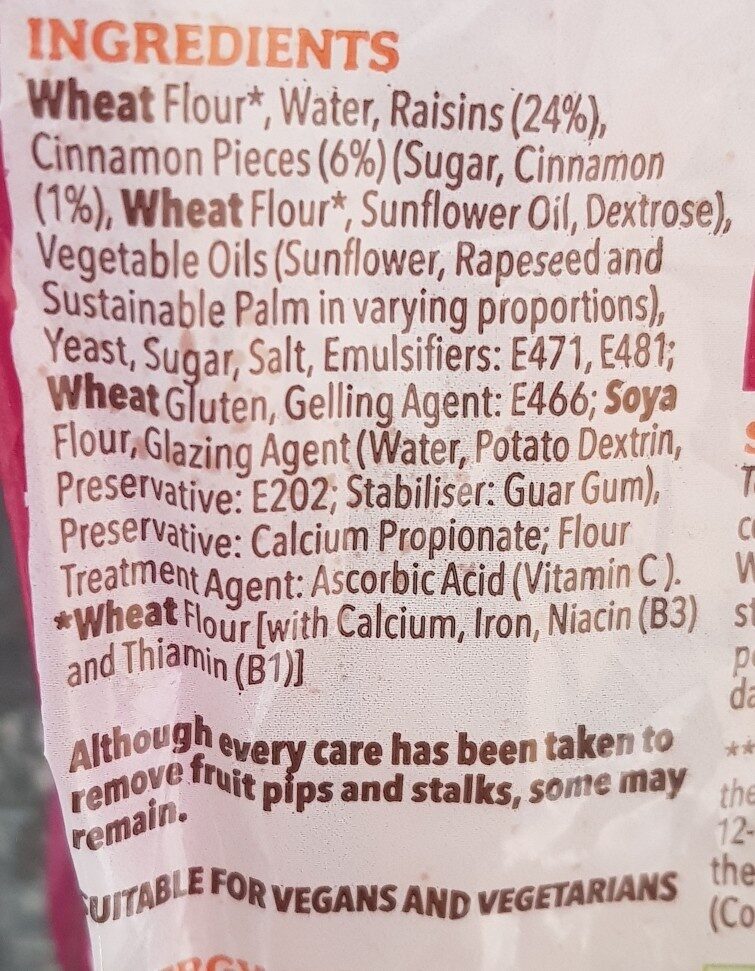Warburtons Fruit Loaf with Cinnamon & Raisin - 400g
This product page is not complete. You can help to complete it by editing it and adding more data from the photos we have, or by taking more photos using the app for Android or iPhone/iPad. Thank you!
×
Barcode: 5010044002743 (EAN / EAN-13)
Common name: Fruit Loaf with Cinnamon & Raisin
Quantity: 400g
Brands: Warburtons
Categories: Plant-based foods and beverages, Plant-based foods, Cereals and potatoes, Breads
Countries where sold: France, United Kingdom
Matching with your preferences
Environment
Packaging
Transportation
Threatened species
Report a problem
Data sources
Product added on by kiliweb
Last edit of product page on by shibboleth1304.
Product page also edited by inf, openfoodfacts-contributors, teolemon, yuka.V2FVWURQd2pvZlV1b01RNzd4aUp5dFpVMTRMMUIwT3dDTXNTSWc9PQ, yuka.sY2b0xO6T85zoF3NwEKvlmtLQtDToi_eDDD6vhekl9WlEsPTO-gjx4zFbKs.
If the data is incomplete or incorrect, you can complete or correct it by editing this page.









